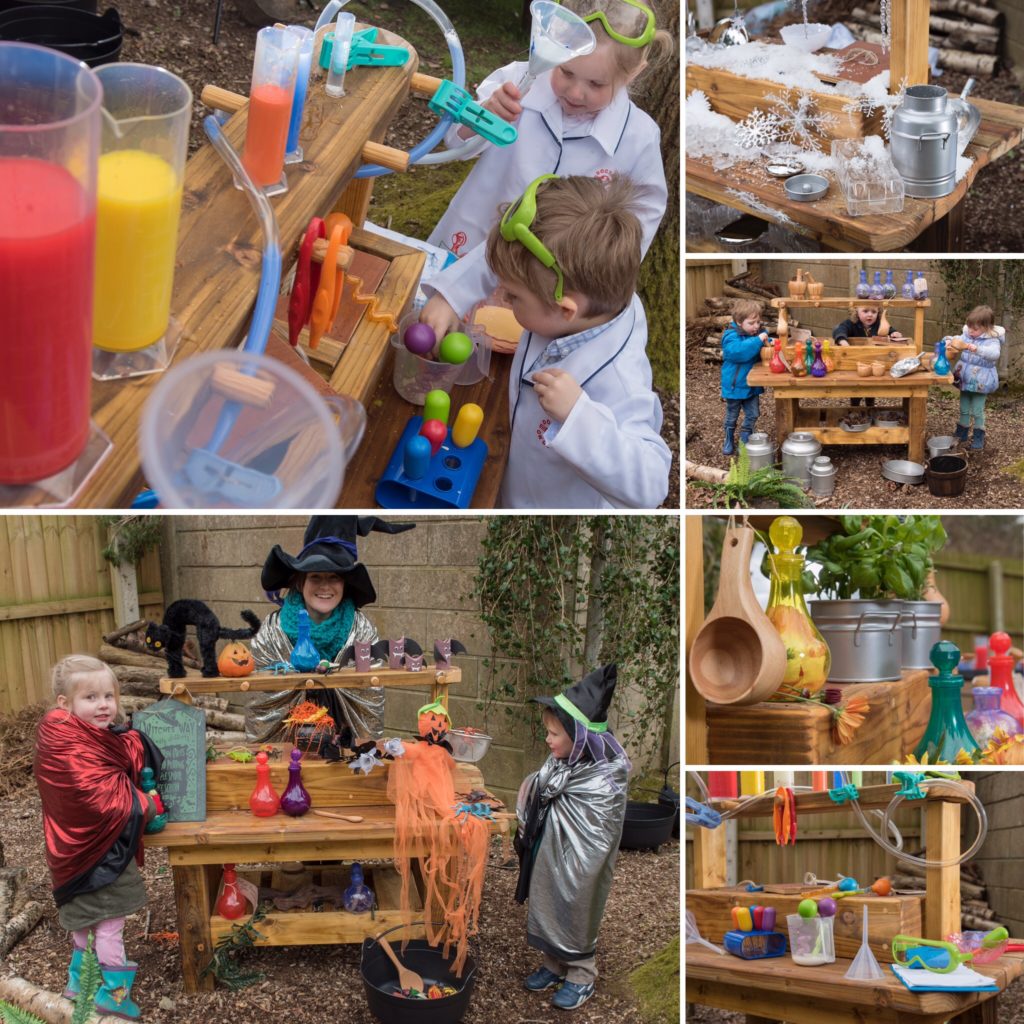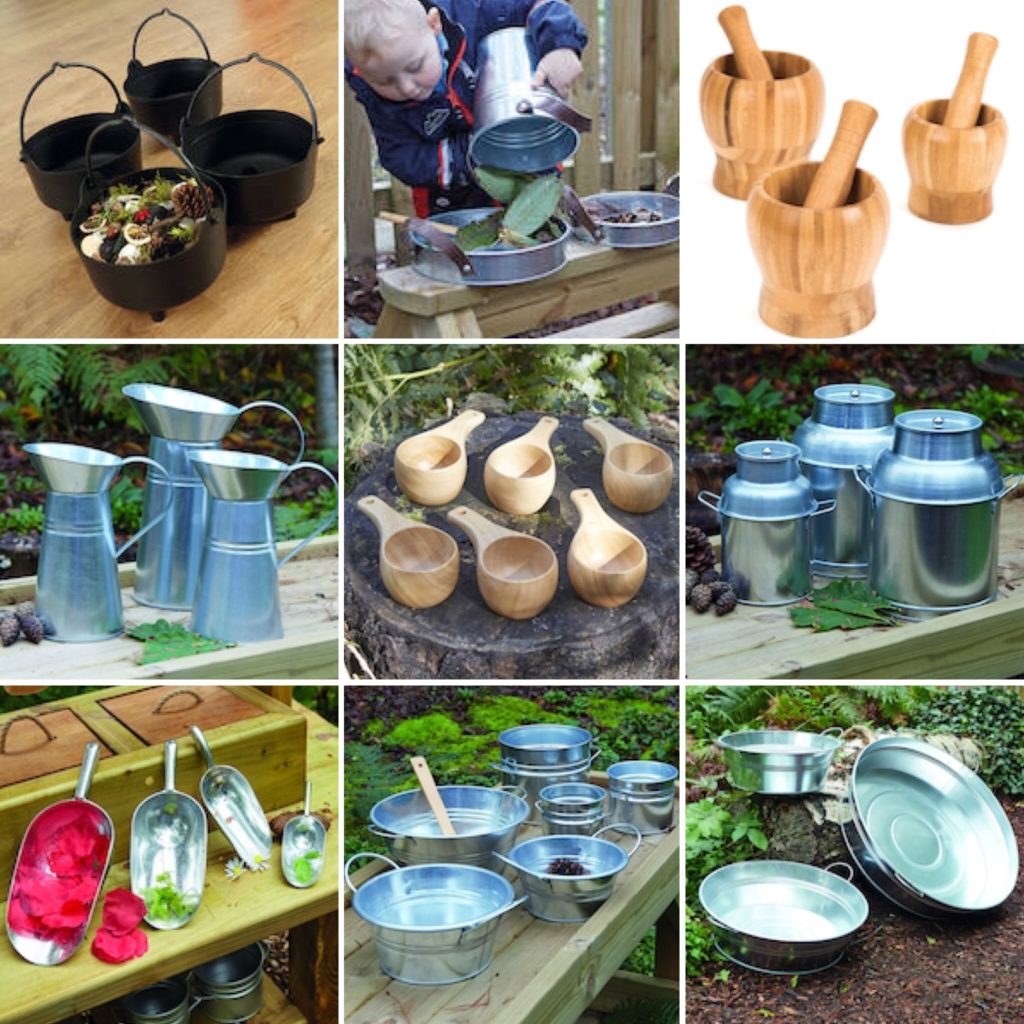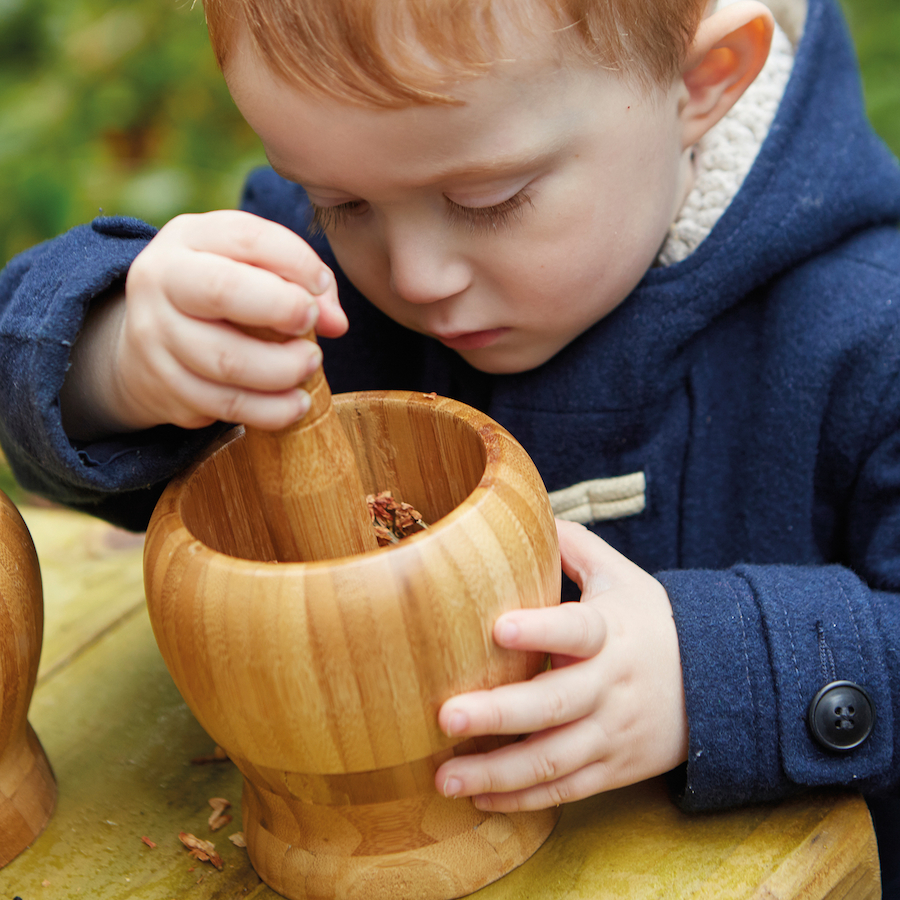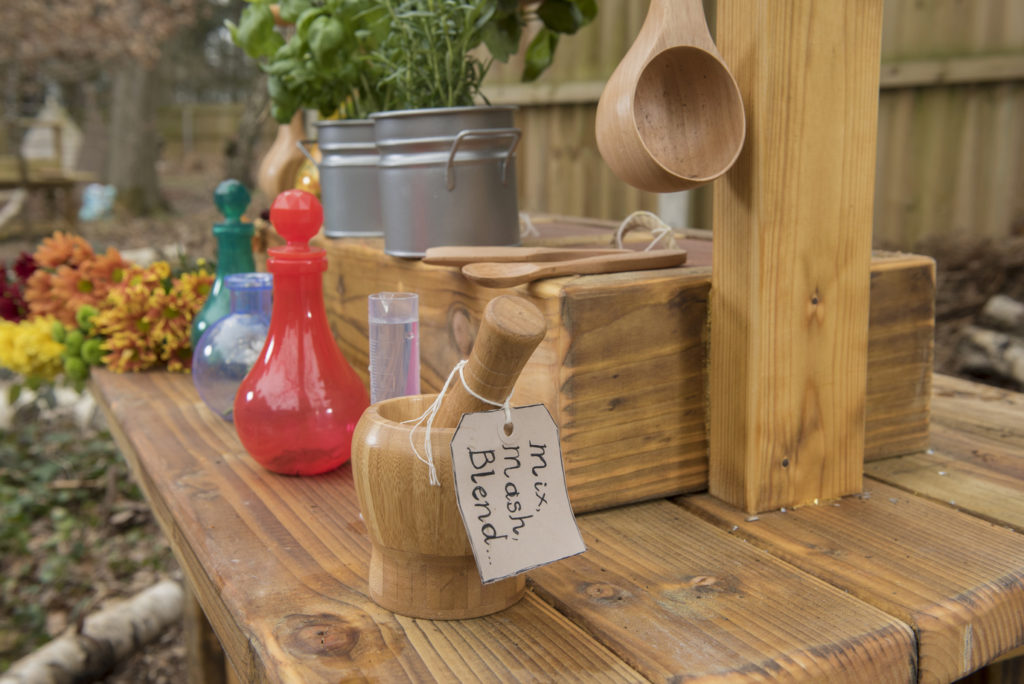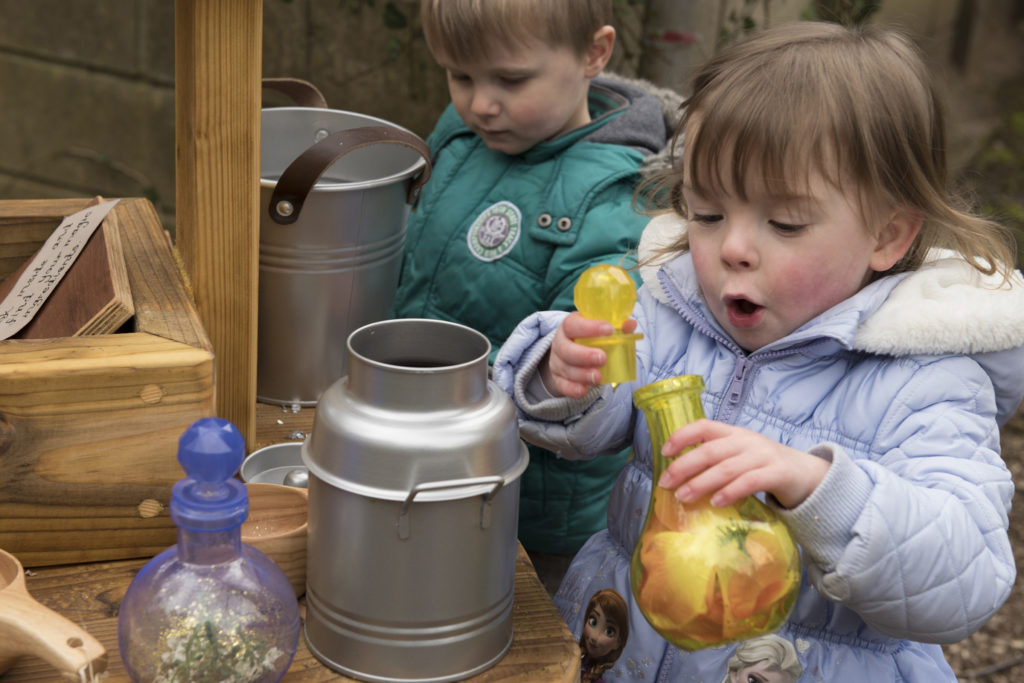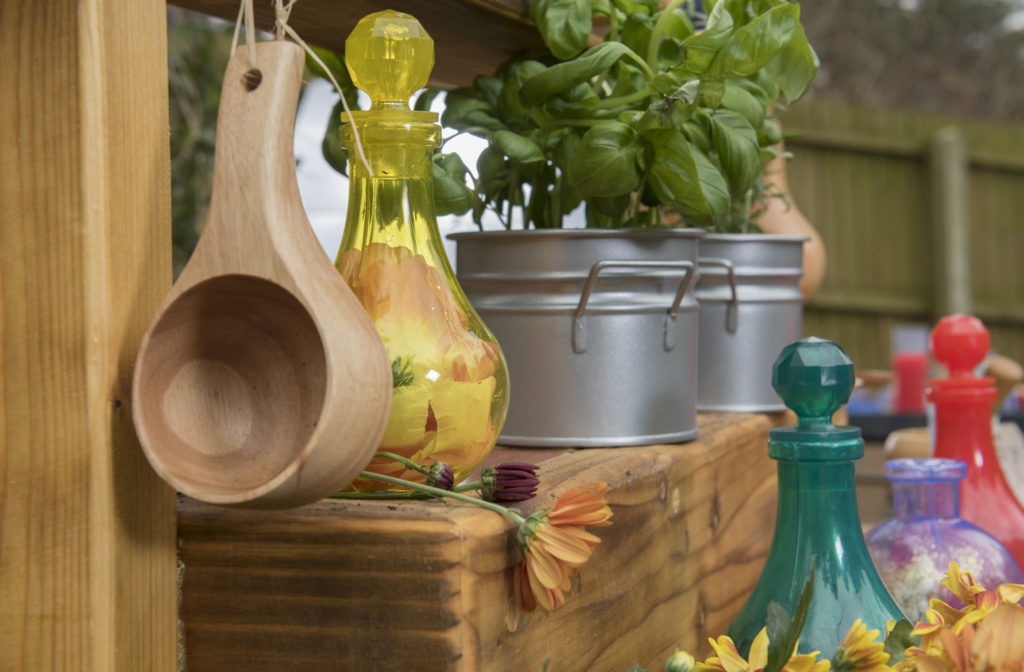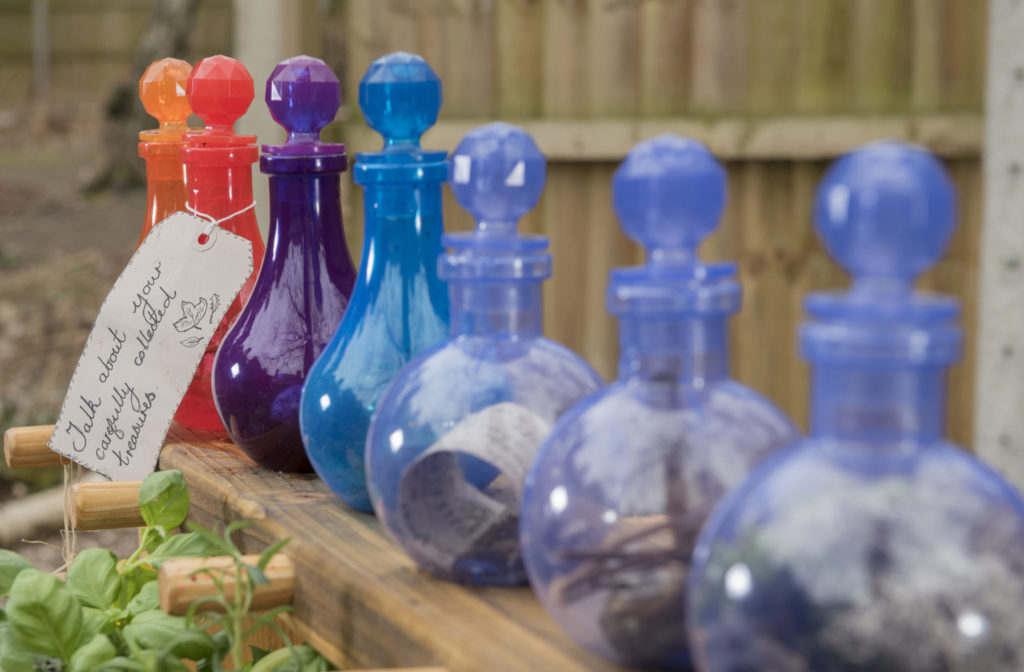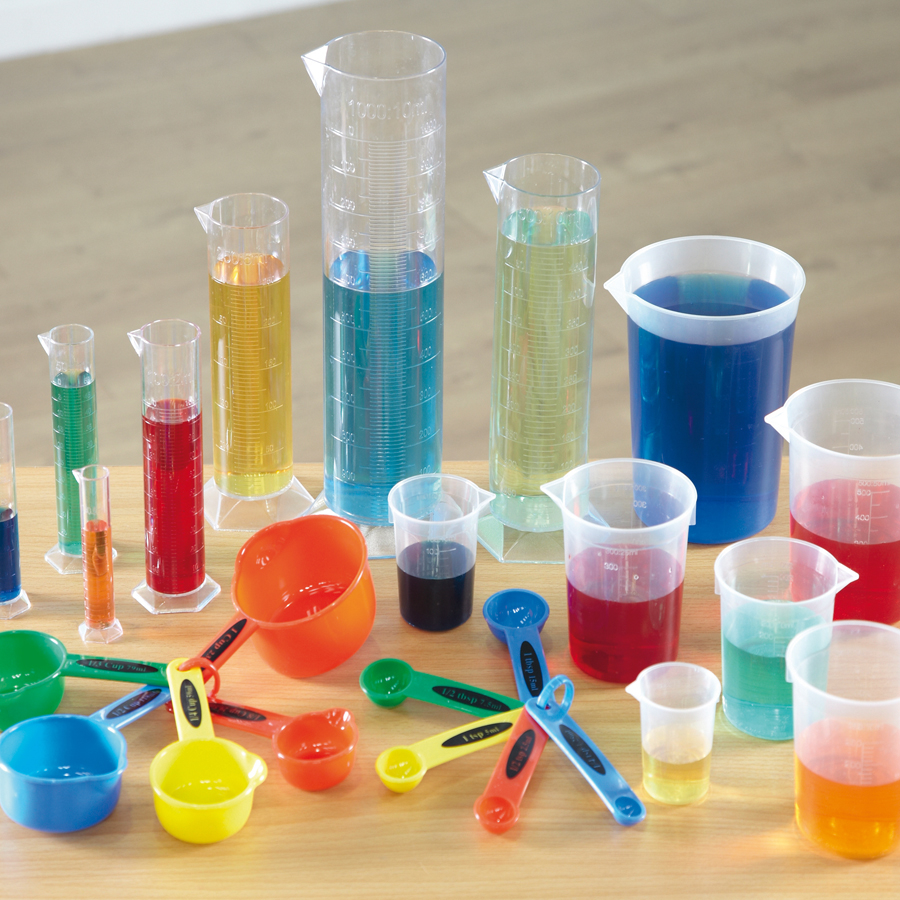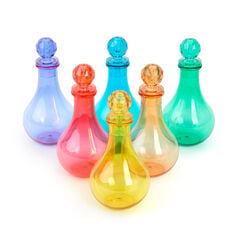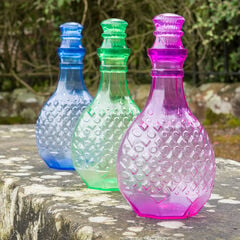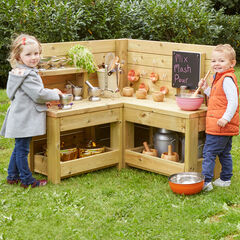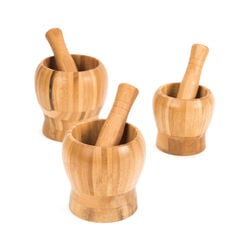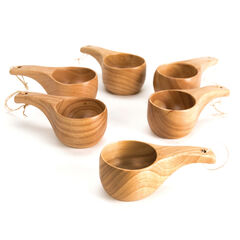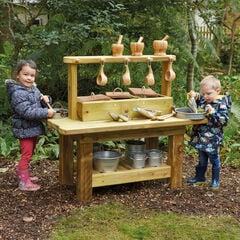Making rose petal perfume was a particular favourite of many generations. Whatever concoctions your children choose to create, ensure they have access to different materials. You may have to provide some extra items in containers. Perhaps they could forage for leaves, grasses, pine cones and stones. Rather than picking your lovely flowers, have flower heads in a beautiful container that they can experiment with (I keep the flowers I have at home and when they start to go past their best I give them to children to play with). Having pots of herbs is also a great sensory addition. Advise children how many leaves they can pick. I found that Basil, Mint and Thyme worked really well as they have strong, aromatic perfumes.
The children need access to lots of different containers such as bowls, pans and sieves. They can choose the containers they create their mixture in before transferring it to the potion bottle. You may wish to provide funnels to decant the contents. There are so many spoons, scoops and ladles they could use to transfer materials. Provide tweezers and tongs. All of these resources help to develop fine motor skills.
On one occasion I observed a child carefully place the contents in a bottle and then he needed to work out how to press the ingredients down. In the end he chose a stick, which did the job beautifully. It was his way of working out a solution to a problem. A pestle and mortar are great for mixing. The science that emerges as they press and mash the contents is wonderful. The aromas blend and changes occur. The state of the material may change from lumpy to smooth or from a solid to a liquid. This is a great way of learning about irreversible change. Display materials that the children can readily access. Try to use interesting containers in order to make the experience more exciting. Just by having a variety of mashers and whisks that all operate in a different manner adds extra learning opportunities to the activities. For many children the enjoyment lies in selecting the materials, mixing them and seeing how it all turns out. The language that can emerge is fantastic. They can describe the soft, perfumed petals, the long, thin grass, the shiny leaves and the smooth stones. They can use prepositional language by describing putting things in the bowls and pouring out the mixtures. This could be taken a step further and the children could write on a label or sticker, describing the contents. Let their imaginations soar. It could be a list, for example, 2 petals, 4 stones, 2 leaves, 1 acorn, 5 blades of grass etc. It could be a description of what to do. Imagine describing a magical potion that has special powers. Having writing materials around is therefore really important. Think creatively about the style of writing opportunities you provide. Question do they excite, motivate and engage? It could be a Talking Clipboard, a wooden writing board or special parchment to record your powerful potions.
I tried making a special ink with the children. We crushed blackberries and added water. They then wrote with quills which added to the whole experience. Think about all of the types of materials you use, in terms of are they natural or man-made? Are they metal, plastic or wooden? Are they smooth, soft, shiny or textured? Think about how maths can be incorporated into the play. There are so many opportunities for learning about sizes, quantities, capacity and volume that can emerge. How many scoops will the container hold? Do you use the small or large spoon? How much more water will the bottle hold compared to the other receptacles? Which is the heaviest or lightest?
Practitioners need to be sensitive and consider when to extend the play and when to stand back. Making potions continues to delight and fascinate children. It is a wonderful opportunity to encourage imaginations to soar as well as developing so many other skills.
View our Messy Play Pinterest Board here.
Shop our Mud Kitchens range here
Written by Catherine Clark, Our Early Years Specialist and former Head Teacher.


